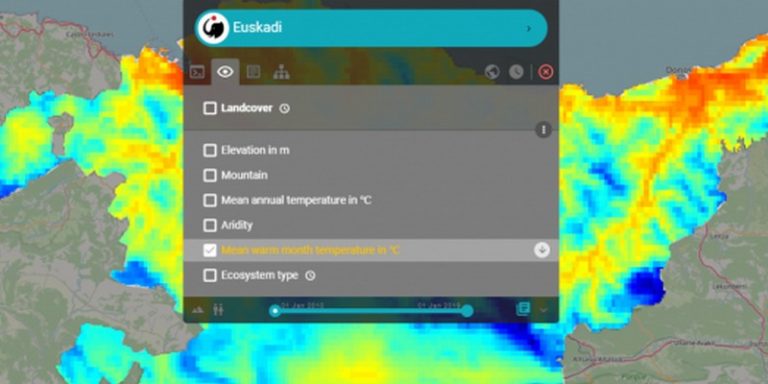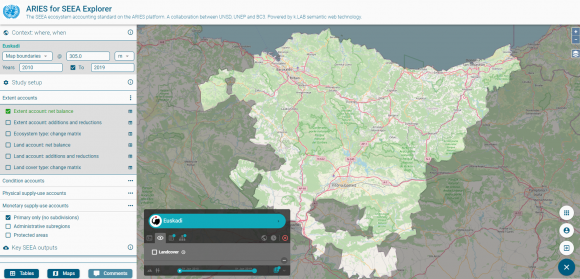
Measuring the impact of nature and ecosystems on countries’ economies and sense of well-being more easily is the goal of a new artificial intelligence-based tool presented by theUnited Nations(UN), and the Basque Centre for Climate Change (BC3). This solution has been designed within the framework of the United Nations Environment Programme (UNEP), in collaboration with BC3 and the Statistics Division of the United Nations Department of Economic and Social Affairs (UN DESA).
Artificial intelligence to help implement the SEEA
This new open-source tool called ARIES for SEEA leverages artificial intelligence using the ARIES platform previously developed by the UN. Member countries will be able to use this solution to implement the recently introduced international standard for natural capital accounting: the System of Environmental and Economic Accounting (SEEA).

Stefan Schweinfest, Director of the Division of Statistics (UN DESA), spoke about the possible uses of the application while stating its benefits:
“ARIES for SEEA Explorer is a game changer for governments wishing to implement the recently adopted SEEA ecosystem accounting standard. This application allows countries to quickly start compiling accounts from global data sources, which they can refine with national data or model parameters.”
The ARIES for SEEA platform is available on the UN Global Platform: a cloud service environment wishing to support international collaboration between all countries by sharing scientific knowledge, data, methods and technology.
Ferdinando Villa, professor at Ikerbasque, is the ARIES principal investigator at BC3. He spoke about the use of AI for sustainable development:
“There is a growing global demand for sustainable management of our natural resources, and to achieve this, scientists and policy makers must increasingly collaborate. AI-based tools like ARIES for SEEA
are the key to a future where collaboration and knowledge reuse to serve sustainable development is possible.”
A tool for the environment
The ecosystem accounts produced by countries will track the impact of natural ecosystems -such as forests and wetlands- in the form of economic and physical indicators. The UN hopes that the implementation of the SEEA will help achieve its Sustainable Development Goals (SDGs) while positively impacting the GDP of states. Bert Kroese, Deputy Director of Statistics of the Netherlands and Chair of the UN Committee on Environmental and Economic Accounting, states:
“ARIES for SEEA
will give countries an indispensable tool to make progress with the SDGs while complying with the post-2020 Global Biodiversity Framework. Easy access to this tool will ensure that no country is left behind in ecosystem accounting.”
According to Susan Gardner, Director of UNEP’s Division of Ecosystems, building economic systems that value nature as a central source of human well-being, environmental health and economic prosperity in the post-COVID-19 world is essential:
“Having technology that incorporates and integrates the latest data, models and understanding of nature’s contributions through natural capital accounting will facilitate well-informed positive decisions by businesses and governments – stimulating tangible action on biodiversity loss, climate change and a sustainable future for all.”
Several countries have begun using ARIES for SEEA. The platform will continue to grow in the near future, adding functionality to derive indicators that assess progress towards the SDGs and the new post-2020 global biodiversity framework.
Translated from ARIES for SEEA : la plateforme de l’ONU pour atteindre les objectifs de développement durable









